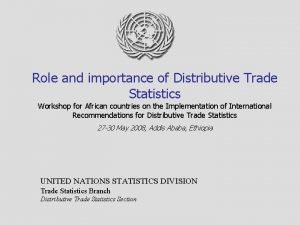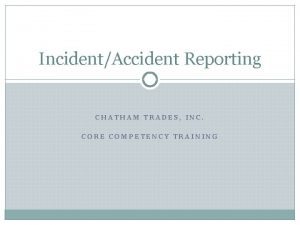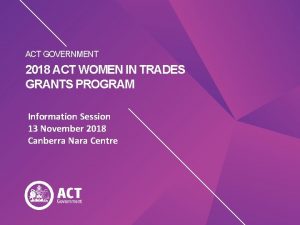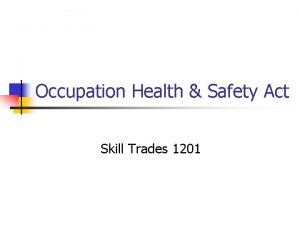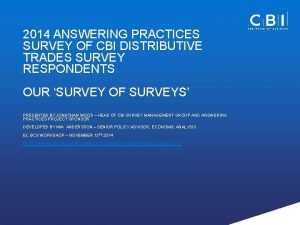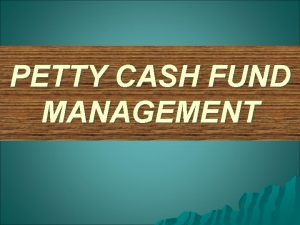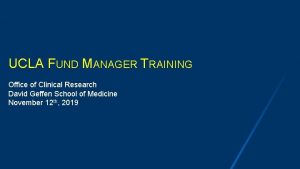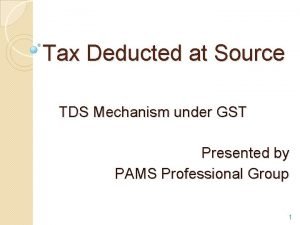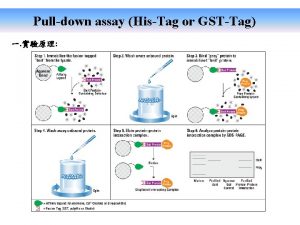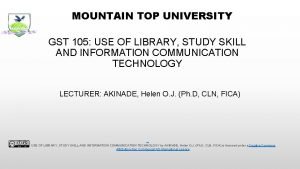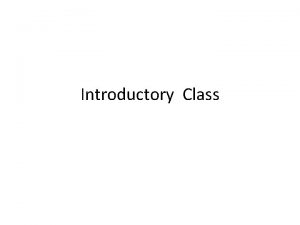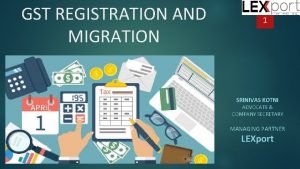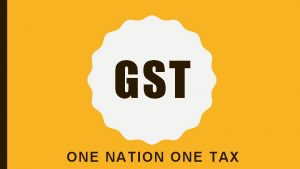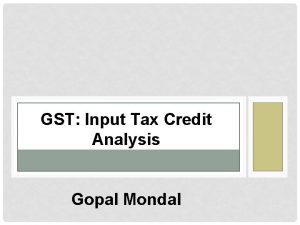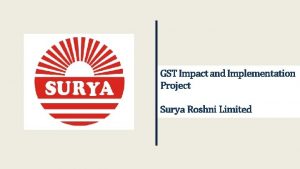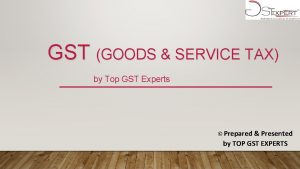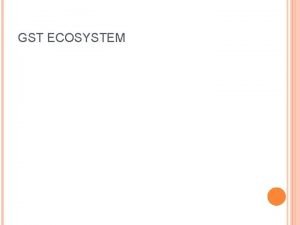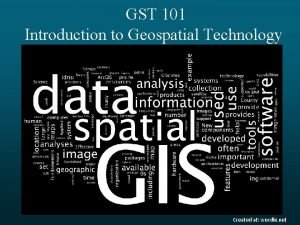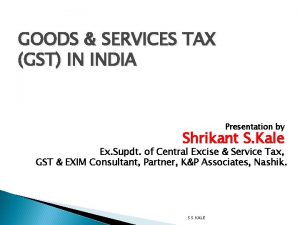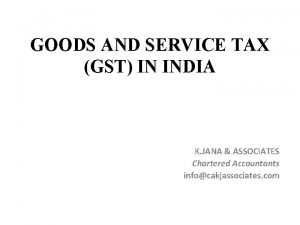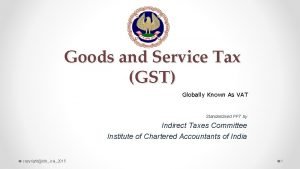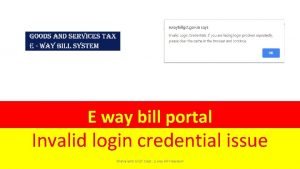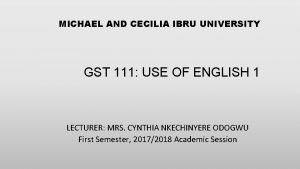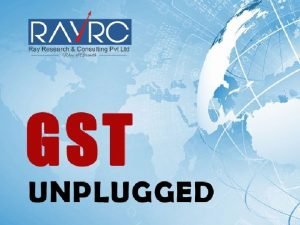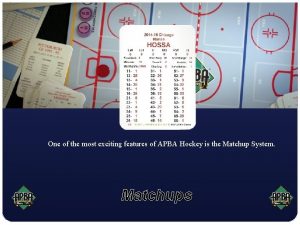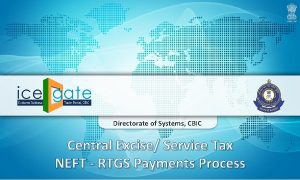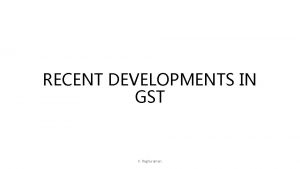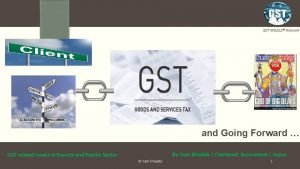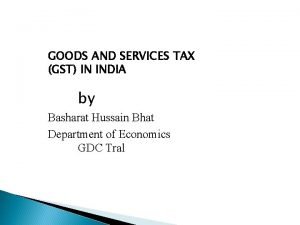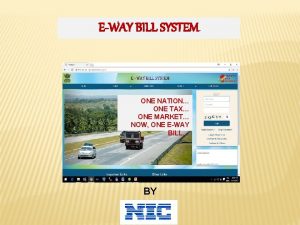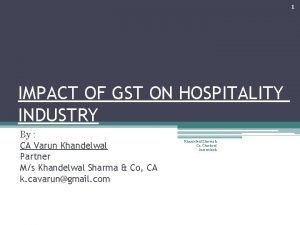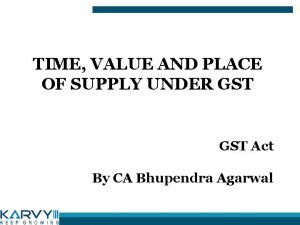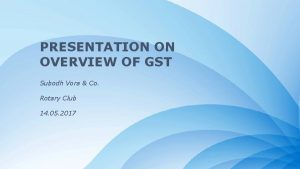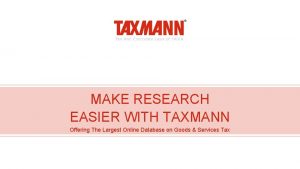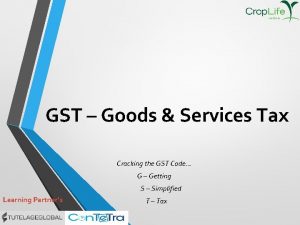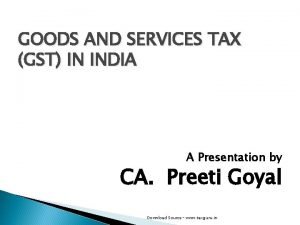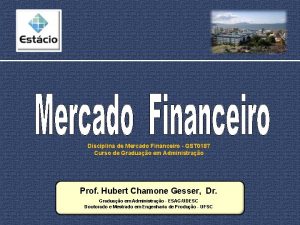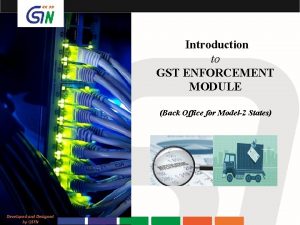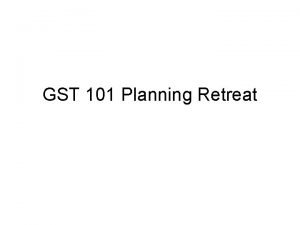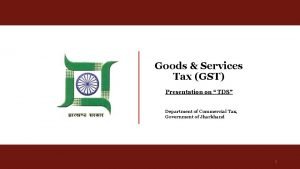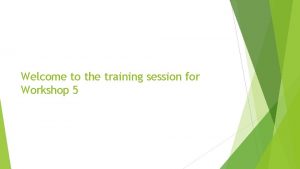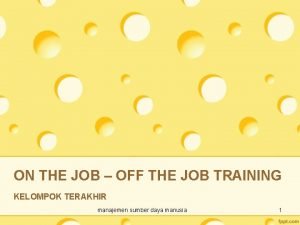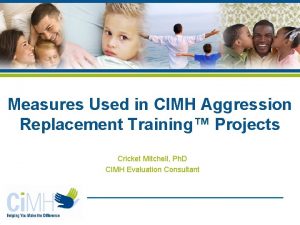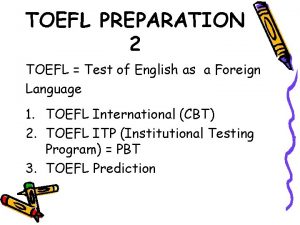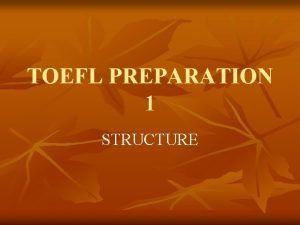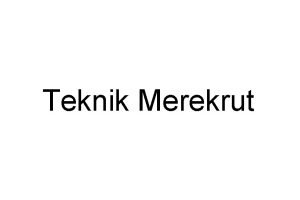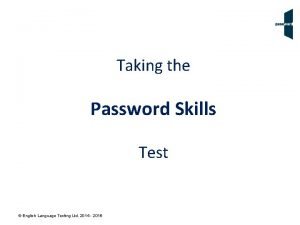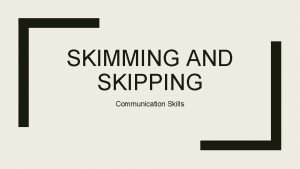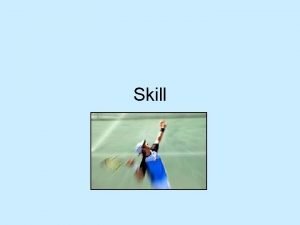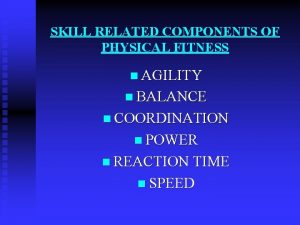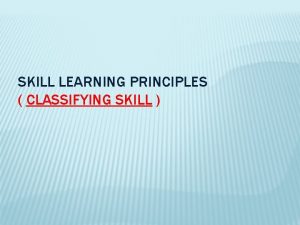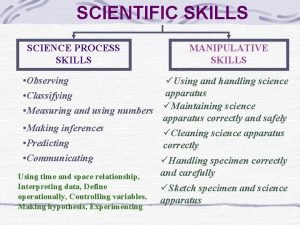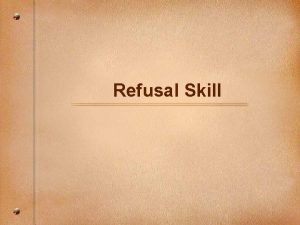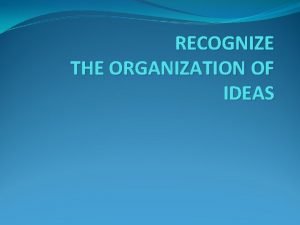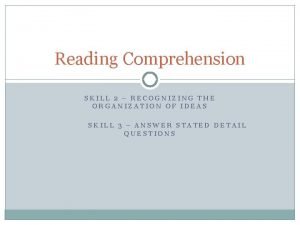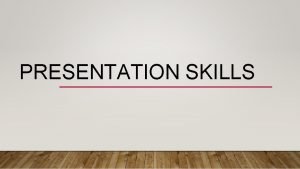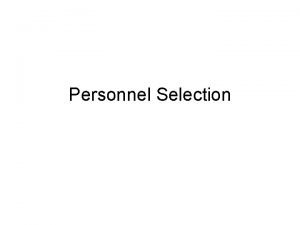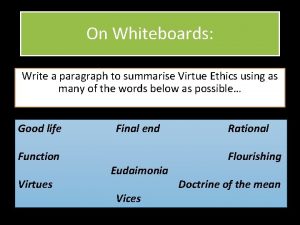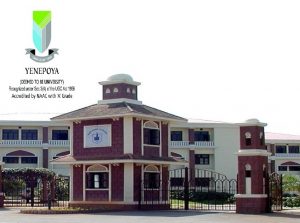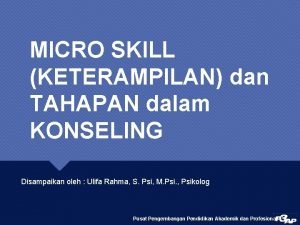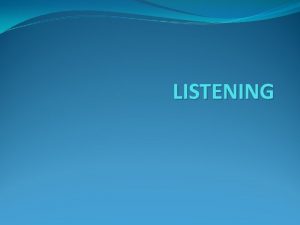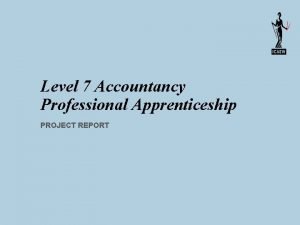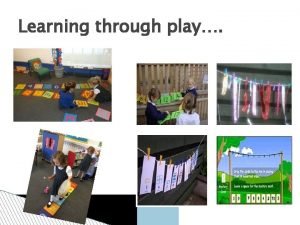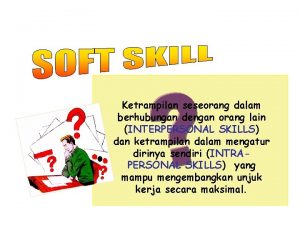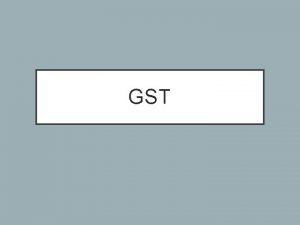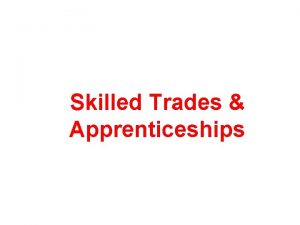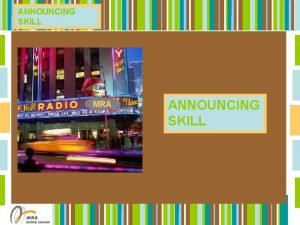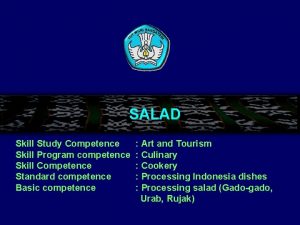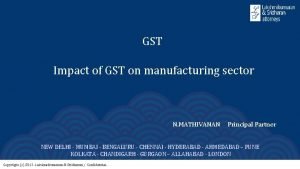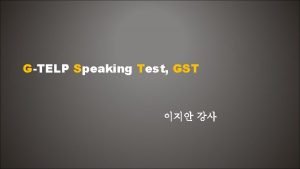Skill Trades Training Fund FY 18 Welcome GST

























































































- Slides: 89

Skill Trades Training Fund “FY 18”

Welcome

GST Michigan Works! Contact David Rose, Business Services Manager, GST Michigan Works! • drose@gstmiworks. org • 810 233 -5974 ext. 349


• All STTF Applications are submitted by GST Michigan Works! on behalf of companies. • STTF applications require a fact finding be done by a GST Michigan Works! Business services Representative • Who is GST Michigan Works!?

GST Michigan Works! supports workers and businesses in the following counties: • Genesee • Tuscola • Shiawassee • Huron • Lapeer • Sanilac

ALL GST Michigan Works! services are pre-paid and are provided at no charge to employers.

Skilled Trades Training Fund The Skilled Trades Training Fund (STTF) began in October 2013 and is on target to train over 30, 000 individuals. STTF provides funds to companies for short term, in-demand training. Companies of all sizes have benefitted from STTF. While the STTF has supported creation of over 400 new apprentices, training is not limited to “skilled trade” occupations; training has included welding, CNC operator, CNC programmer, robotics, IT training, electronic health records, and on-the-job training for individuals to be hired.

“Skilled Trades” Training Fund is for all jobs in your company Targeted Industries include but are not limited to: • Agriculture • Energy • Health Care • Information Technology & Media • Manufacturing

FY 17 Funded Businesses

FY ’ 17 Funded Businesses Cont.

FY 2017 Able to secure over $1, 100, 000 for area businesses

New for FY 18 § 29 million in funding o $27, 619, 349 available for employers

Application Period September 18 To October 6 • Competitive scoring until funds are exhausted • Anticipate demand exceeding supply • Awards announced in November

Applications To GST Michigan Works! September 18 To October 6 To ensure the application is accurate and competitive GST Michigan Works! needs your application sent to Dave Rose on or before 5 pm on October 6, 2017.

Eligible Businesses § Must be: üA private or non-profit • Governmental agencies and institutions are not eligible üIn compliance with all federal and state tax obligations § Must have a: üMichigan presence üDemonstrated need for training § Businesses with multiple sites (plants/facilities/locations) üMust complete an application for each site • Funding for all sites is not guaranteed

To be considered for an STTF award, the business is expected to: 1. Be actively involved in the planning and design of the training project; 2. Pay wages to employees, that are equal to or greater than, the prevailing wage for the local labor market, for the applicable job title;

Multiple Applications • Consortium application and an independent application • Consortium: • A partnership of two or more companies with the objective of participating in shared training resources

Consortiums • New name o Industry-led Collaborative (ILC) • Open application period o Applications accepted when the ILC is ready • Employers may submit an Industry-led Collaborative application and an independent application • Industry-led Collaborative: o A partnership of two or more companies with the objective of participating in shared training resources

To be considered for an STTF award, the business is expected to: 1. To close-out prior year STTF grant before applying for another; and • If a company has an open award, they may not submit a FY 18 application. There are two exceptions: • Open apprenticeship • Retention for new hires 2. Use www. mitalent. org and GST Michigan Works! to recruit for job openings.

Queue is back! • Applications not funded will be held by TIA

Allowable Training Providers Michigan Community Colleges Universities Private Training Providers Proprietary Schools as licensed in the State of Michigan ü Businesses only if their resources or equipment is exclusive in nature and not available elsewhere ü ü § Supporting rationale must be in the application ü Vendors providing training in operation of equipment or systems for which they were the provider

Trainee s • State of residency is not a factor • Non-Michigan residents eligible • Trainee’s individual Unemployment Compensation must be paid by the company to the state of Michigan • Employer must have paid in full applicable taxes to the State of Michigan for the trainee • Still need to ensure they are authorized to work in the United States and are a full-time permanent employee • To clarify for new hires: • 1099 (contract) employee must be obtaining new job/skills • Same as temporary worker

Eligible Trainee ü Employee or future employee of Michigan applicant company ü 18 years or older üTrainees must be permanent, full-time employees § Full-time is 32 -40 hours per week § Seasonal or part-time employees are not eligible

Trainee Expectations • Be a suitable match for the employer prior to training (OJT) • Have the academic skills necessary to successfully complete training • Commit to complete training

Hiring a Veteran • An extra $500 for hiring veterans • New hire (classroom and/or on-site wage reimbursement): Up to $1, 500. 00 Plus $500. 00 Up to $2, 000. 00 • New hire registered apprentice: Up to $3, 000. 00 Plus $500. 00 Up to $3, 500. 00 • Require Form DD-214 with reimbursement request to obtain the extra funds

Targeted Populations • For individuals to be hired and trained with STTF funding, company has a strategy to recruit individuals within the Targeted Populations: o o Veterans Individuals with Disabilities Returning Citizens Older Workers

Allowable Training (NEW) • 2 MAT • English as a Second Language (ESL)

Allowable Training programs funded by the STTF must fill a demonstrated talent need experienced by an eligible participating business. The classroom training must lead to a credential for a skill that is transferable and recognized by the industry and leads to permanent fulltime employment or continued permanent full-time employment. The individual must obtain a credential that will allow them to gain or retain employment.

Three Types of Training 1. Classroom • For current employees and/or individuals to be hired 2. On-site training with wage reimbursement • For individuals to be hired 3. New USDOL Registered Apprenticeship • For current employees and/or individuals to be hired

Allowable Training Classroom training for current employees or individuals to be hired On-site training with wage reimbursement, for individuals to be hired New USDOL Registered Apprenticeships training for current employees or individuals to be hired Not to exceed $1, 500 per person Not to exceed $3, 000 person

Allowable Training programs funded by the STTF must: • Fill a documented talent need experienced by an eligible participating business • Must lead to full-time employment or continued employment Examples of allowable training include: • Classroom (Must lead to a credential for a transferable skill) • OJT • Incumbent Worker • USDOL Registered Apprenticeships for “NEW” apprentices (Only first year apprentices)

Classroom Or Customized Training Examples include but are not limited to the following: • Welding, CNC Operator, CNC Programmer, IT, GD&T, Blueprint Reading, etc. • Safety training may be allowable if it is beyond the required training. An example: • MIOSHA Overview, or lock-out/tag-out, is not allowable training. However, MIOSHA 10, which is approximately 30 hours of training, may be allowable depending on the rationale.

Lean may be acceptable training provided the following: • Black or green belt preferred, with supporting rationale • Business has an overall Lean strategy, provide rationale • Competency-based • Hands-on component to the training • Is not a general overview • STTF cannot cover consulting services

On-site training with wage reimbursement for individual(s) to be hired 1. Work-based learning 2. Training for the individual(s) to obtain skills to become proficient in the new job 3. Individual(s) must be hired after the STTF Application is approved and before training begins 4. STTF should not be utilized for low-wage, high turnover occupations 5. If individuals being hired have worked for the company through a temporary staffing agency, the individuals must be increasing their job responsibilities or learning a new job Ø It is not the intent of STTF to reimburse a business to train someone on their current job

Training Duration • Funding will be utilized to provide short-term training to meet current, documented needs of businesses, typically three months or less, no training plan should exceed six months. • At a minimum one training should begin prior to February 9, 2018. Classroom training and OJT posttraining retention should be completed no later than August 1, 2018. • Training should be expedited as soon as possible after the grant has been awarded, four to six weeks is preferred.

Modification Clarification q Modifications must be approved prior to changes occurring § If training dates change, but are within the approved time no modification is required q Training is short-term in duration is a scoring criteria. If a company seeks a training extension modification WDA will review to determine if it affects the scoring. If so, it may be denied. q Names must be reported by the 20 th of each month. Failure to do so may result in forfeiture of a grant.


Employer Expectations q Actively involved in planning and designing of training q Pay wages to trainees that are equal or greater than the current regional occupational wage for the applicable job title q STTF should not be utilized for low-wage, high turnover occupations q Enter into a training agreement with GST Michigan Works!

Expectations of Businesses ü Share outcomes, success and impact stories ü Use www. mitalent. org and the GST MW! to post job openings for new workers ü Retain employees at the completion of training ü Contribute to the training, cash or in-kind § Confirm estimated contribution at completion of training

Expectations continued ü Provide required documentation for reimbursement § Promptly upon the completion of training ü Provide the names of individual(s) hired monthly to the MWA § Failure to do so may result in forfeiture of funds ü Provide wage information prior to training, at completion of training and six months post-training ü If company experiences layoffs, notify the Michigan Works! Agency immediately to determine impact on training

Legislation Clarification Legislation states training is “…for apprenticeship programs and more advance-tech training programs…” and “…individual skill enhancement for employees…” q STTF is not to be utilized for low-wage, high turnover occupations q Individuals trained must be employees of the company

Cost of Training Note: STTF cannot and will not reimburse for training that occurs prior to the WDA approval date of the application.


Classroom Training • • Conducted by third party unless exclusive in nature Lead to recognizable credential, which enhances individual’s employability May take place at the training provider, onsite at company, or online May be for current employee(s)or individual(s)to be hired after the STTF application is approved

On-site training with wage reimbursement (OJT) • On-site training with wage reimbursement for individual(s) to be hired • Training for the individual(s) to obtain skills to become proficient in the new job • Individual(s)must be hired after the STTF application is approved and before training begins

On-site training with wage reimbursement (OJTs) OJTs require: 1. Master Agreement with Company 2. Individual training plan for the employee (Same as WIOA OJTs) 3. Request for reimbursement is made 90 days after the completion of the last OJT. 4. Reimbursement is made in ONE check.

Apprenticeship Training üNew USDOL Registered Apprentice § An individual who begins a USDOL Registered Apprenticeship at any point within the three months prior to company submitting an STTF application, or § An individual not currently in an USDOL Registered Apprenticeship üMay receive up to $3, 000 per trainee § Combination of classroom and on-site work experience • Cannot reimburse for 100% of on-site work experience

Apprentice Documentation • Registered Apprenticeship Partners Information Data System (RAPIDS) printout required • Supports that they are a USDOL Registered Apprentice • New Apprentice Demographic form • Both required with invoice



Prohibited Training • In-house training that is not exclusive in nature for current employees • Adult Education • Basic computer skills • Literacy • Language other than ESL • Leadership • Supervisory, Management, Lead Worker • Soft. Skills • Resources are available at no cost at the e. Learning Soft Skills website (http: //www. mitalent. org/elearning-soft-skillsprogram) • Team building, customer service, etc. /

Prohibited Training • Process improvement (Basic LEAN or LEAN Overview) • Wage reimbursement for current employees • Seminars, conferences, workshops, etc. • Consulting to improve company processes • Continuing education credits • Safety training that is required i. e. normal cost of doing business • Subscriptions for e. Learning

Prohibited Expenditures The following are prohibited training expenditures; however, they can be included in the leveraged funds from businesses/employers: • Purchase of tools or other equipment • Including laptops/computers • • • Licensing fees Testing fees Curriculum development Travel costs to send trainee(s) to training On-line training subscriptions The STTF cannot reimburse for training that has occurred prior to the application and training plan being approved.

Minimum Requests • Minimum application $1, 000 • Minimum invoice $1, 000 • Unless it is the final invoice • Still prefer $3, 000

Scoring Criteria Rationale Planned Duration of Training Employer Contribution Employer has not received a previous STTF grant Application includes training for new USDOL Registered Apprentices Company employs less than 100 For individuals to be hired and trained with STTF funding, company has a strategy to recruit individuals within the Targeted Populations If company is a past STTF recipient, did they utilize 50% or more of grant funds Application is part of an Industry-led Collaborative Company is located in a Rising Tide Community Total Up to 35 Up to 10 Up to 20 7 5 5 5 Up to 5 4 4 100

Rationale • Rationale is based on: • Introductory statement • Description of need/business case • Explanation of types of training with tie-in to need

Past Performance If a company received an STTF award between October 1, 2015 – September 30, 2017 did they utilize: 80% - 100% of their grant funds = 5 pts 60% - 79% of their grant funds = 4 pts 40% - 59% of their grant funds = 3 pts 20% - 39% of their grant funds = 2 pts less than 20% = 0 pts

Grant Request Cap There is not a minimum or maximum number of individuals to be trained or dollar amount for applications, but there is a monetary cap, or limit, per trainee. Companies need to determine the training that can be completed under the “training is short-term in duration” while continuing to meet customer demand. As a reference, the average award for since 2014 has been approximately $33, 938.

Past Awards

Visit www. michigan. gov/sttf for more information

The FY 17 application period 1. STTF application and instructions released Monday, September 18, 2017 2. The MWA will accept applications until Friday, October 6, 2017 3. Applications received by GST MW after 5: 00 p. m. on Friday, October 6, 2017, will not be considered 4. The WDA will notify GST Michigan Works! of receipt of an application with an email stating “received. ”

4. The WDA will review all applications competitively scored until funds are exhausted 5. In instances of applications being of equal merit, and there are limited funds, additional preferences may be considered that may include, but are not limited to, the following: § § Previous award recipient Amount of request/return on investment Type of value/credential earned Distribution throughout all regions

6. Once all applications have been reviewed and the WDA has determined the applications for approval, the MWAs will be notified in writing. • There will be limited funds • It is anticipated that demand will surpass supply • All companies will not receive funding • The WDA may negotiate awards for a reduced amount • Completion of an application does not guarantee funding

Obtaining an Application • Requests for an STTF Applications through GST Michigan Works! is made through the GST Michigan Works! Business Services Manager who manages the application process • The Business Services Manager will coordinate the processes with the referring partners and the employer(s)


Planning Prior to receiving STTF Application

Classroom Training Planning

OJT or persons to be hired Training Plan

Application Process GST MWA will conduct fact finding to determine : 1. If regional and local funds can be used first 2. If funding streams can be blended to achieve the outcomes for the customer(s) 3. If the training request meets the employers needs 4. What other options may provide a better solution If STTF is appropriate: A STTF application is emailed to the employer(s) to be filled out and returned to GST MWA.

Application is a three step process: 1. Employer(s) completes sections 1 -3 on the application & the separate training plan, emails it to the Designated Michigan Works! BSP 2. The Training Plan must accompany the application 3. MWA reviews the application & training plan for accuracy, completes Section 4 of the application and makes a recommendation to fund or deny the application and submits it to: skilled@michigan. gov 4. WDA reviews application and will notify us in November as to the awardees. No hard copies of applications will be accepted






Implementation • GST MWA will contact the business and referring partner to inform them of the funding decision • Upon approval, your training agreement is drafted and signed by the designated employer representative and the designated GST MWA representative. Copies are kept on file for future monitoring • Training cycle begins

Training Payment Process • Funding awarded to the GST MWA • GST MWA will pay the employer • Consistent with approved documentation of the eligible costs

Classroom Training Payment • At training completion GST MWA submits an invoice along the most recent STTF training plan, certificates & invoices • WDA reviews verification form for payment approval • Funding awarded through Purchase Order • GST MWA pays the employer for training costs consistent with the approved application

OJT Payments • At completion of 90 day retention period GST MWA submits the verification and follow-up form • WDA reviews form for payment approval • Funding awarded through Purchase Order • GST MWA reimburses the employer for costs consistent with the approved application • Actual reimbursement based on retention table • OJT reimbursement is a single payment at retention for all OJTs

OJT Reimbursement • is hired on December 1, 2017 • Training Reimbursement: $14. 00 X 120 hours = $1, 680. 00 • completes on-the-job training on December 21, 2017 • March 21, 2018 is still employed with the company • Company may seek 100% reimbursement as retention period reached the 90 day

OJT Reimbursement 100% payment may be requested at the end of the 90 -day post training retention

Documentation for Reimbursement Classroom training 1. Current Training Plan with updated wage information at completion of training 2. Training invoices 3. Training completion certificates OJT Reimbursement 1. Current Training Plan with updated wage information at completion of On-the-job wage reimbursement training 2. Copy of wage information including hire date for the duration of the OJT & retention periods

Monitoring Classroom training • Training Plan updated & completed • Certificates ONLY • Sign-in sheets NOT ALLOWED OJT • Payroll register closest to the three month pay period • Must include hire date & pay periods of OJT • Redact all other employees information • Only need to record actual trainee information • Records should be retained for three years

Applications will become available September 18, 2017 1. 2. 3. 4. Next Steps Schedule a required FACT-FINDING Establish a training plan Write your funding rationale Applications are sent to all employers following the fact-finding

BSP “REQUIRED” Fact-finding Contacts • Genesee County • Cindy Thornthwaite • Shiawassee County • Ty Krauss • Lapeer County • Derek Chisholm • Tuscola County • Sheila Rock • Huron County • Kyle Pine • Sanilac County • Eldon Preston • NOTE: 810 233 -5974 Ext. 352 989 729 -9559 Ext. 431 810 664 -1680 Ext. 21 or 621 810 673 -8103 Ext. 812 989 269 -2311 Ext. 317 810 648 -5800 Ext. 516 If you are unable to reach a BSP above please contact Cindy Thornthwaite above.

Applications To GST Michigan Works! September 18 To October 6 To ensure the application is accurate and competitive GST Michigan Works! needs your application sent to Dave Rose on or before 5 pm on October 6, 2017.


Skill Trades Training Fund
 Importance of distributive trade
Importance of distributive trade Chatham trades
Chatham trades Women in trades funding
Women in trades funding Sap nextgen-trades
Sap nextgen-trades Skilled trades 1201
Skilled trades 1201 Cbi distributive trades
Cbi distributive trades Slills
Slills Petty cash fund imprest and fluctuating
Petty cash fund imprest and fluctuating Wise men three clever are we
Wise men three clever are we Grant implementation plan
Grant implementation plan Ucla dom ora
Ucla dom ora Ucla fund manager training
Ucla fund manager training What is utr in gst
What is utr in gst Gst deduction at source
Gst deduction at source Annexure b for gst refund
Annexure b for gst refund Gst pull down
Gst pull down Gst 105: use of english pdf
Gst 105: use of english pdf Gst 113
Gst 113 Section 18(1)(c) of gst
Section 18(1)(c) of gst Gst suo moto cancellation revoke
Gst suo moto cancellation revoke Introduction of gst
Introduction of gst Section 18(1)(c) of gst
Section 18(1)(c) of gst Surya roshni share
Surya roshni share Gst rates on services pdf
Gst rates on services pdf Roles in gst eco system
Roles in gst eco system Gst 101
Gst 101 Importance of gst
Importance of gst Igst set off rules
Igst set off rules Goods and service tax
Goods and service tax Invalid login credentials error in way bill
Invalid login credentials error in way bill Ibru language
Ibru language Impact of gst on construction industry
Impact of gst on construction industry Conclusion on gst
Conclusion on gst Gst matchup chart
Gst matchup chart Ctin in gst
Ctin in gst Definition of gst
Definition of gst Yash dhadda
Yash dhadda Needs of gst
Needs of gst Ppt on itc under gst
Ppt on itc under gst Http//gst.gov.in
Http//gst.gov.in Impact of gst on hotel industry pdf
Impact of gst on hotel industry pdf Time and value of supply under gst
Time and value of supply under gst Subodh vora & co
Subodh vora & co Taxmann gst rate finder
Taxmann gst rate finder 28% gst
28% gst Conclusion of gst
Conclusion of gst Diagnostica di primo livello
Diagnostica di primo livello Grupo financiero gst
Grupo financiero gst Laxmikumaran and sridharan gst
Laxmikumaran and sridharan gst Gst law enforcement
Gst law enforcement Gst notification on solar power generating system
Gst notification on solar power generating system Retreat evaluation form
Retreat evaluation form Gst em signer error link
Gst em signer error link Welcome to the training session
Welcome to the training session Training is expensive without training it is more expensive
Training is expensive without training it is more expensive Perbedaan on the job training dan off the job training
Perbedaan on the job training dan off the job training Aggression replacement training facilitator training
Aggression replacement training facilitator training Black board work
Black board work What are the 5 basic skills in volleyball?
What are the 5 basic skills in volleyball? Skill 18: anticipate the topics
Skill 18: anticipate the topics Skill 18 base form verbs after modals
Skill 18 base form verbs after modals How to develop intrapersonal skills
How to develop intrapersonal skills Skill theme approach physical education
Skill theme approach physical education Using math to define the foodservice industry
Using math to define the foodservice industry 6 skill related fitness
6 skill related fitness Skill mempengaruhi orang lain
Skill mempengaruhi orang lain Password english language testing
Password english language testing Stages of learning pe
Stages of learning pe Scanning and skimming examples
Scanning and skimming examples Different abilities or characteristics
Different abilities or characteristics Agility skill related fitness
Agility skill related fitness Continuous skills examples
Continuous skills examples Basic scientific skills
Basic scientific skills Refusal skills
Refusal skills Organization of ideas in reading
Organization of ideas in reading Skill 2 recognize the organization of ideas
Skill 2 recognize the organization of ideas Presentation skill definition
Presentation skill definition Selection ratio
Selection ratio Skill analogy
Skill analogy Nsqf credits
Nsqf credits Budaya korporat
Budaya korporat Which
Which Microskill
Microskill Making decision is a fundamental life skill
Making decision is a fundamental life skill Almost negative expressions
Almost negative expressions Listening skills conclusion
Listening skills conclusion Icaew end point assessment
Icaew end point assessment Play skill development
Play skill development Three skill approach to leadership
Three skill approach to leadership Transforming beliefs adalah
Transforming beliefs adalah
